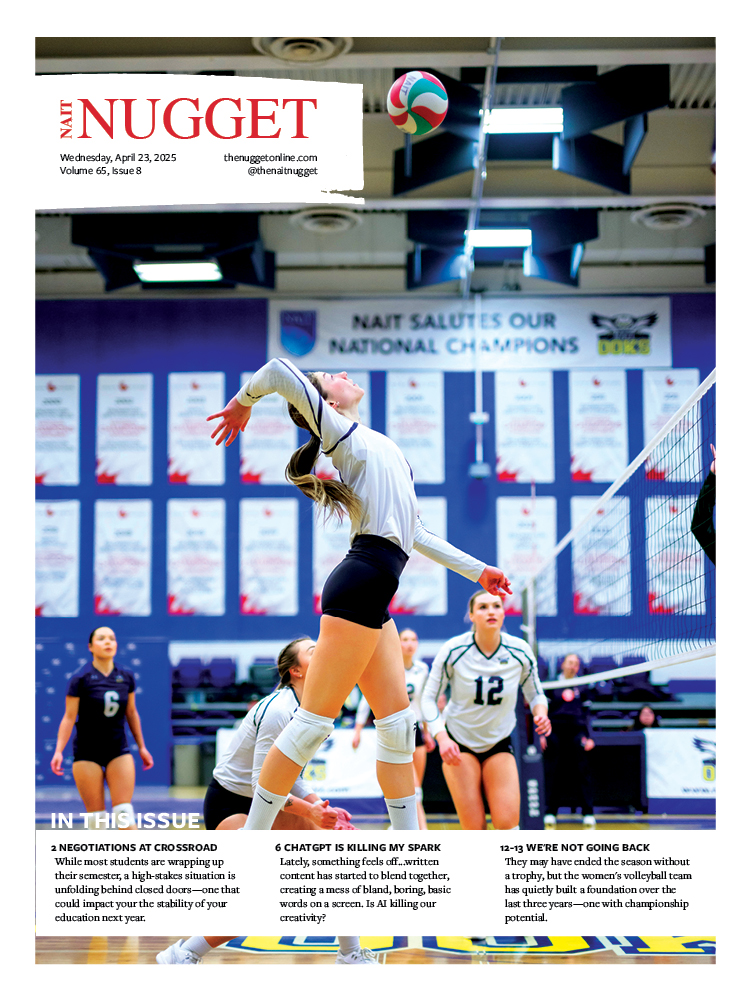NAITSA’s Peer Support and NAIT’s Counselling services have noticed students are seeking help earlier in the semester. While both are experiencing their annual uptick in appointments as finals season approaches for students, they’ve both seen a shift in the way students think about mental health.
“We’ve been hearing a lot of people say that they want to get ahead of the stress,” said NAIT’s Lead Psychologist Tanya Spencer. “It means that people are being more proactive and they’re more comfortable looking for formal support.”
“I believe mental health right now is not taboo anymore,” added Hazel Sanchez, NAITSA Peer Support Coordinator. “It’s more a part of your regular life.”
NAIT’s support services label visits according to whether they’re conventional or urgent. Conventional visits consist of individuals who want to vent or speak with someone about personal issues, while urgent visits consist of people in distress. Spencer said both numbers remain consistent through the years for counselling, with roughly 12 per cent of clients being urgent cases.
“There’s a lot of students that are still coming to class when they’re caring for a terminally ill parent, or they’ve been in a big car accident or they’ve had a pretty major episodic illness, ” said Spencer. “Every day, we learn about the brave and dedicated things your schoolmates are doing.”
According to Spencer, the number one reason people come to counselling is anxiety and stress, followed distantly by depression and interpersonal concerns. Peer supporters hear from students about school stress but may also hear about family or relationship issues due to their younger demographic. Both services typically expect more clients around October or November, but Sanchez said Peer Support started receiving people in distress within the third or fourth week of September.
“Surprisingly, the first case we got was a suicidal case,” said Sanchez. “You don’t expect that on your first shift as a peer supporter, but you’re trained to deal with those cases as well.”
As both support services train to handle most cases, Spencer believes the differences between peer support and counselling boil down to student preference.
“Our service is very private but it’s not anonymous,” said Spencer. “Peer support is, and I think a lot of people find that attractive.”
Peer support services don’t require students to disclose their name or ID unless the student wants to share it. Sanchez added that even if a student shares their information, peer supporters will not use it for safekeeping or follow-up.
“Once you come into the peer support room you can open yourself as much as you want,” said Sanchez. “But once you walk out, the session has ended and that’s it.”
As the sun sets faster and the semester draws to a close, students can access Peer Support in J209B and Counselling in W111PB on the Main Campus. Clients typically have to book appointments two to three weeks ahead for counselling unless they feel their need is urgent, but Peer Support is a walk-in service. Both services also offer virtual visits.
“School is inherently stressful, even for talented learners,” said Spencer. “I would encourage people to not blame themselves. It’s not that people are weak or they’re not cutting it. This is just a really busy and stressful time.”






